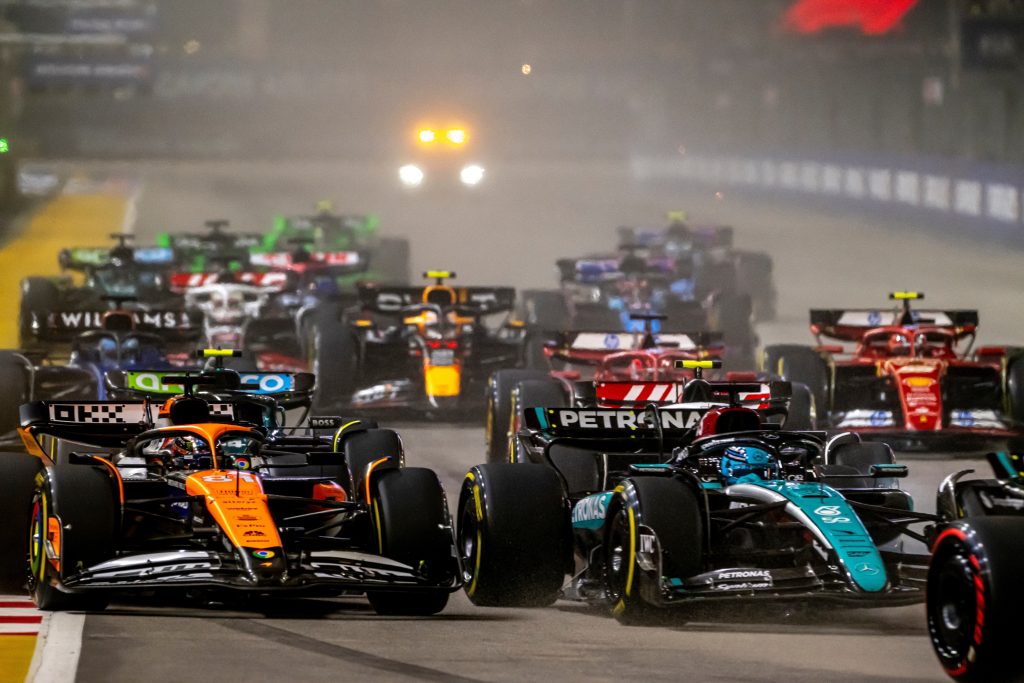
Some athletes train to win. Max Verstappen was trained to survive first, and win anyway.
At just four years old, Max climbed into his first go-kart. Because his father, former F1 driver Jos Verstappen, believed greatness demanded pressure. And so, he threw his son into the deep end. Quite literally. Jos didn’t believe in coddling or modern training protocols. He believed in grit. In adaptation. In chaos. Before every race, Jos would sabotage Max’s kart—miscalibration engines, misaligning tires—forcing Max to learn how to win when everything went wrong.
And Max did. By age 7, he could feel the track through vibration. Hear failure before it happened. And most importantly, he developed an intuitive connection to the machine that others simply couldn’t match.
Off the track, he was just as intense. He taught himself Dutch, English, French, and German so he could communicate with engineers faster and decode feedback from multinational teams in real time.
When Mercedes offered Max a slower track to F1, he said no because Red Bull offered a faster path to F1, so he took it. Three months later, Max Verstappen became the youngest F1 driver in history. And in his very first race with Red Bull Racing, he won. Just like that. The chaos kid took the crown.
Verstappen’s Rebel Approach
What makes Verstappen a rebel isn’t just his age or his stats. It’s his approach.
From day one, he played the game differently. While others leaned on advanced simulation training, Max got real-world experience. While others optimized their car setup for balance and safety, Max ran setups so sensitive no one else could even keep the car on the track. But for Max, that sensitivity was the point. The car became an extension of his nervous system.
He didn’t ask for permission. He didn’t wait to be ready. He just drove. Behind every race win and headline is his philosophy that mental toughness matters more than talent. And Verstappen lives it. Every lap, every corner, every season.
Challenges and Criticisms
Naturally, not everyone liked it when the young kid on the block started raking in wins.
When Verstappen started breaking records, the critics were quick to blame the car. “Too fast,” they said. “Unfair advantage.” But what they missed was what Max had decades of obsessive preparation, multilingual fluency, emotional discipline, and track instincts honed under sabotage.
Yes, the Red Bull car was fast. But Max was faster. Mentally and strategically. Even early in his career, he was seen as aggressive—too bold in overtakes, too ruthless under pressure. But over time, he matured into a tactician. He learned when to push and when to pull back. When to make a statement and when to play the long game. His driving style evolved, but his obsession never changed.
Verstappen’s Impact
Now, with four consecutive Formula 1 World Championships under his belt (2021–2024), 64 Grand Prix wins, and his record-breaking 19 wins in a single season, Max Verstappen has changed the psychology of racing.
Max made it cool to be intense again.
While everyone else was focused on PR training and polished personas, he reminded the world that obsession is a virtue when paired with purpose. That it’s okay to be different, to speak plainly, to win unapologetically, and to build your career your way.
Lessons We Can Learn From Verstappen
- Adaptation is a superpower: Verstappen didn’t rise because conditions were perfect. He learned to win when they weren’t. If you’re building a business, launching a product, or navigating a pivot, learn to thrive in imperfection.
- Preparation Beats Talent: Max’s father didn’t raise him to be the most talented. He raised him to be the most mentally prepared. The same goes for any leader. Talent might open doors. But discipline keeps them open.
- Play Your Game: Mercedes offered prestige. Red Bull offered speed. Max chose the route others wouldn’t. In a world full of conventional wisdom, be brave enough to go the unconventional path.
- Master the Details: Learning multiple languages to get a 1% communication advantage isn’t normal. That’s the point. Rebellious leaders sweat the small stuff because it leads to big results.
- You Don’t Need Permission to Be Great: Max didn’t wait for the perfect moment or unanimous approval. He acted. He drove. He showed up prepared and let his actions speak for themselves.
Max Verstappen is more than a driver. He’s a case study in how resilience, obsession, and authenticity can defy the odds. And that’s why we’re spotlighting him. Because the rebels who win aren’t just lucky. They’re deliberate. They know the track. And when it’s time to go, they don’t hesitate.
Need Help Writing?
At Alliance Ghostwriting we help rebellious leaders establish authority and build their audience with high quality ghostwriting and copywriting. Do you want to write a book or recurring blog? We’ve got you covered.
You break the mold, we’ll handle the writing. Contact us to learn more!